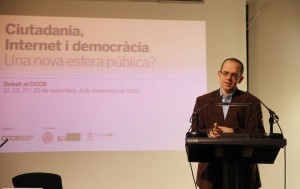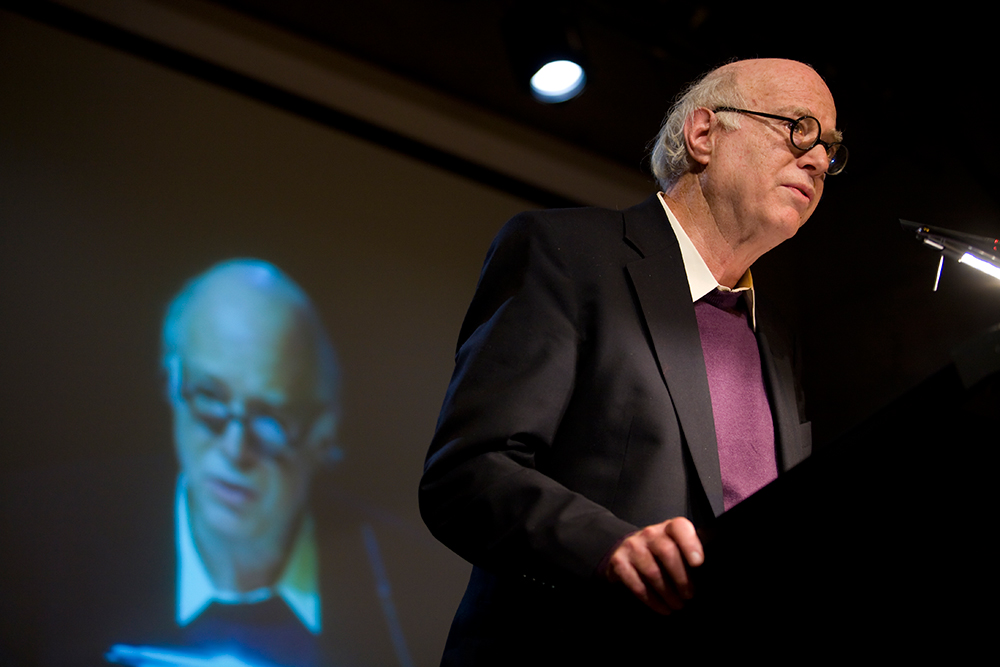
Evgeny Morozov during his last lecture
Evgeny Morozov is one of the foremost critical thinkers in the current debate about the role of the internet during the changing times we are immersed in. It seems quite clear and nobody argues with the fact that the technological changes of our age are extremely significant. The debate about who wins and who loses acquires even greater significance when new technologies alter long-established ways of doing things, such as manufacturing and working, policymaking and governing societies, and influence their cost-effectiveness. In spite of his youth, (he was born in 1984), Evgeny Morozov has come to the forefront of this international debate by using solid arguments to highlight the fact that the internet threatens the way democracy is run.
In a short period of time, Morozov has published two books (El desengaño de Internet. Los mitos de la libertad en la red, Destino, 2012; To Save Everything Click Here. Technology, solutionism and the urge to fix problems that don’t exist, Allen Lane, 2013),and numerous articles in the most prestigious newspapers and magazines. Morozov has sought to unmask and draw attention to what he considers to be the false promises which the internet (and the businesses who take advantage of it) have made us believe: its ability to solve problems and favour our independence and ability to produce, think and decide. He has been one of the most incisive writers against the cyber-optimism which guaranteed that the problems of freedom and democracy would be resolved through technological change. While his first book talks about the problems of new technological tools in tackling their promised aims, the second focuses more on the objectives and argues that the internet turns what should be public and collective into something private and individual. Furthermore, it affirms that the internet seeks to promise us a solution to all our concerns, when they are often part of our collective and individual modus operandi and way of life.
Whether we agree with Morozov’s views, there is no denying that he has carved out a place in the area that politicises and views as problematic the growing impact of the internet on our lives and power relationships. What better way to begin the Open City series than with this debate? Because it is precisely with subjects such as smart cities and the spread of smartphones that we take for granted the fact that there will be greater transparency, an increase in the citizens’ ability to decide and have control of public affairs as well as improvements in urban issues. A lively discussion is guaranteed.
Evgeny Morozov will be at the CCCB next Monday January 27th to start the series “Open City” giving the opening lecture ‘Democracy, Technology and City‘. You can watch the lecture live via streaming or follow the Twitter updates using the hashtag #ciutatoberta.








